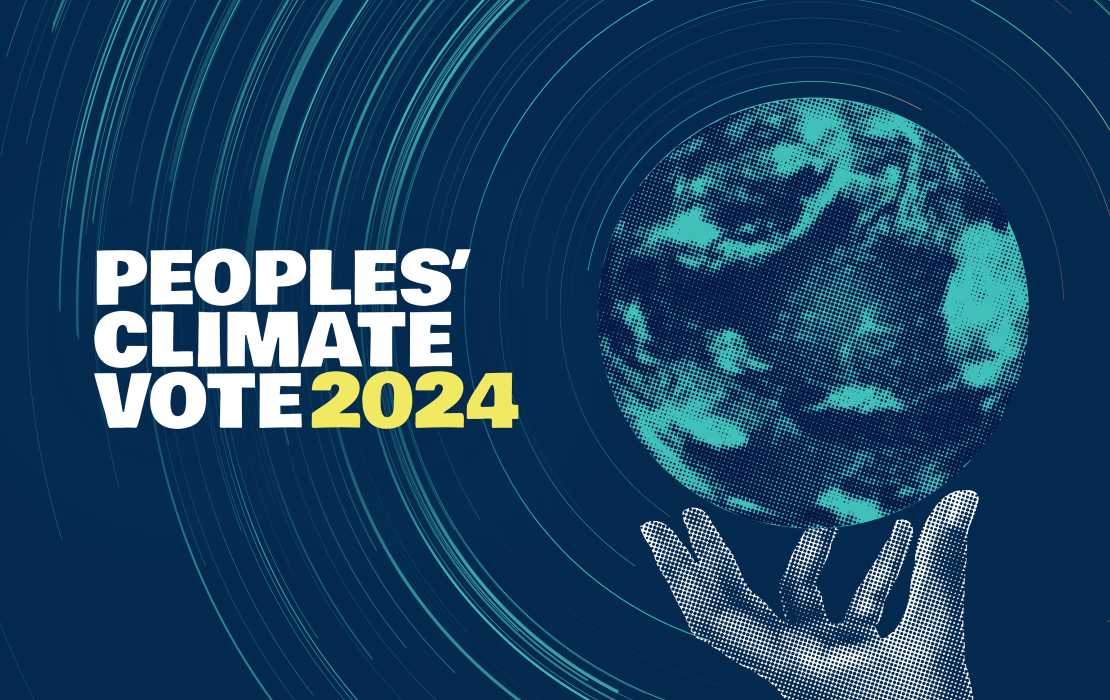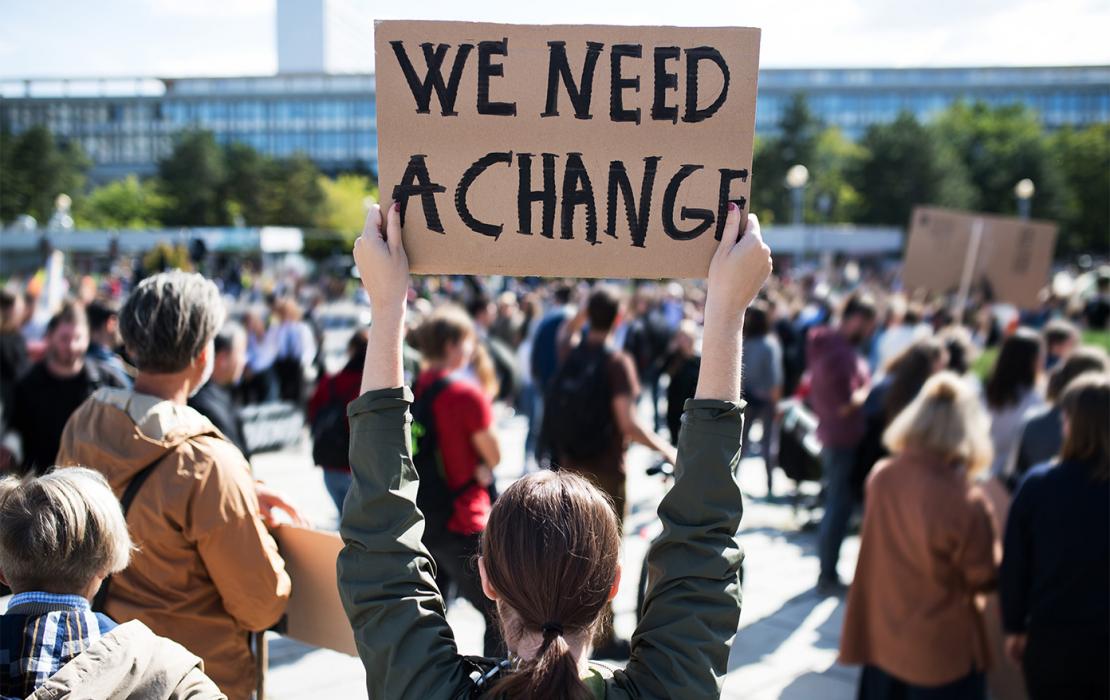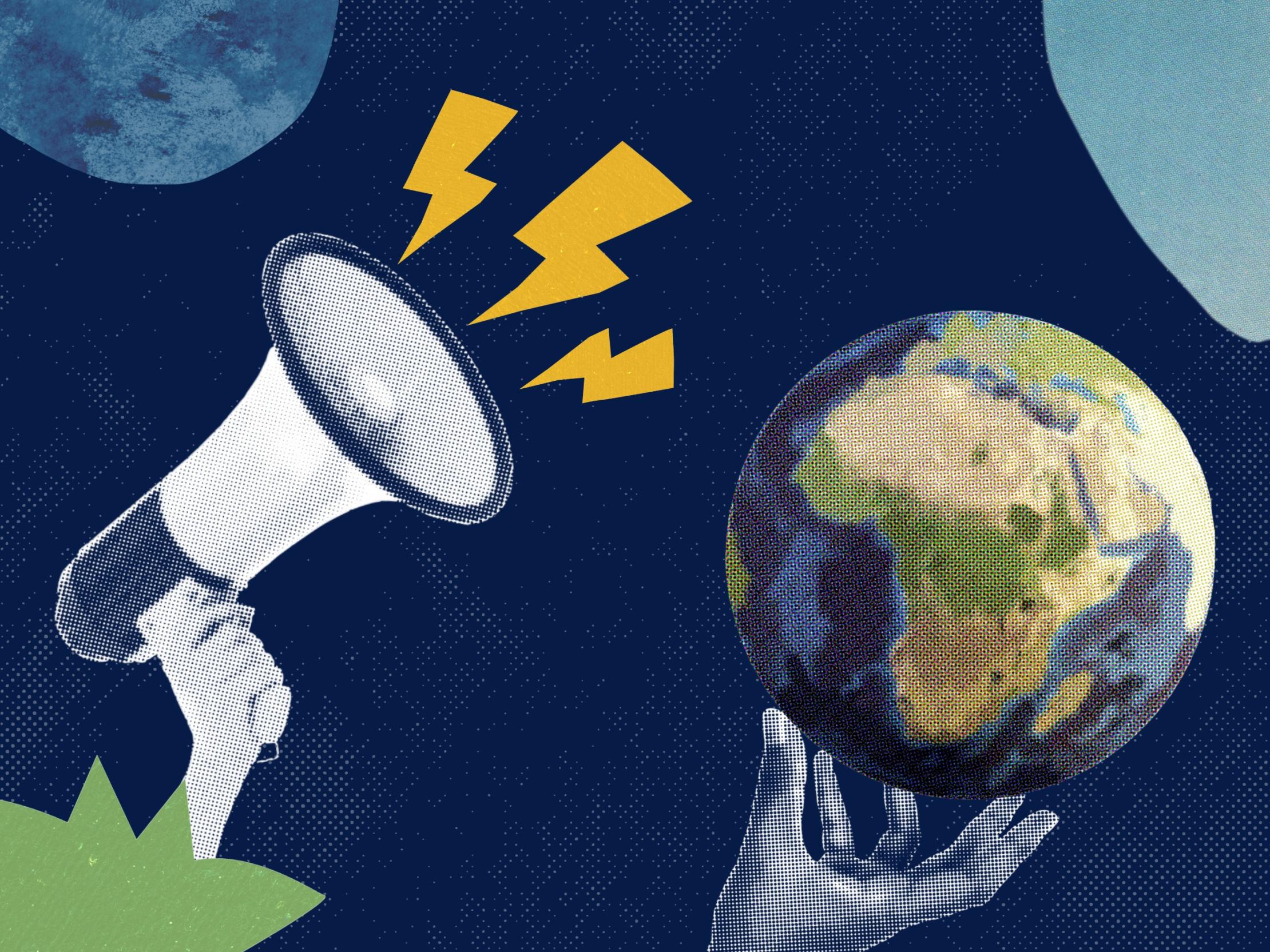
Summary
- Peoples’ Climate Vote 2024 is the world’s largest standalone public opinion survey on climate change.
- The survey examined how people are experiencing the impacts of climate change and how they want world leaders to respond.
- More than half of people globally said they were more worried about climate change now than last year, and four out of five want their countries to strengthen commitments to address climate change.
- Survey results show high levels of support for a range of climate actions, including nature restoration, rapid transition from fossil fuels and climate education in schools.
- The results provide decision-makers with a reliable, inclusive and comprehensive snapshot of how climate change is affecting the world’s population.
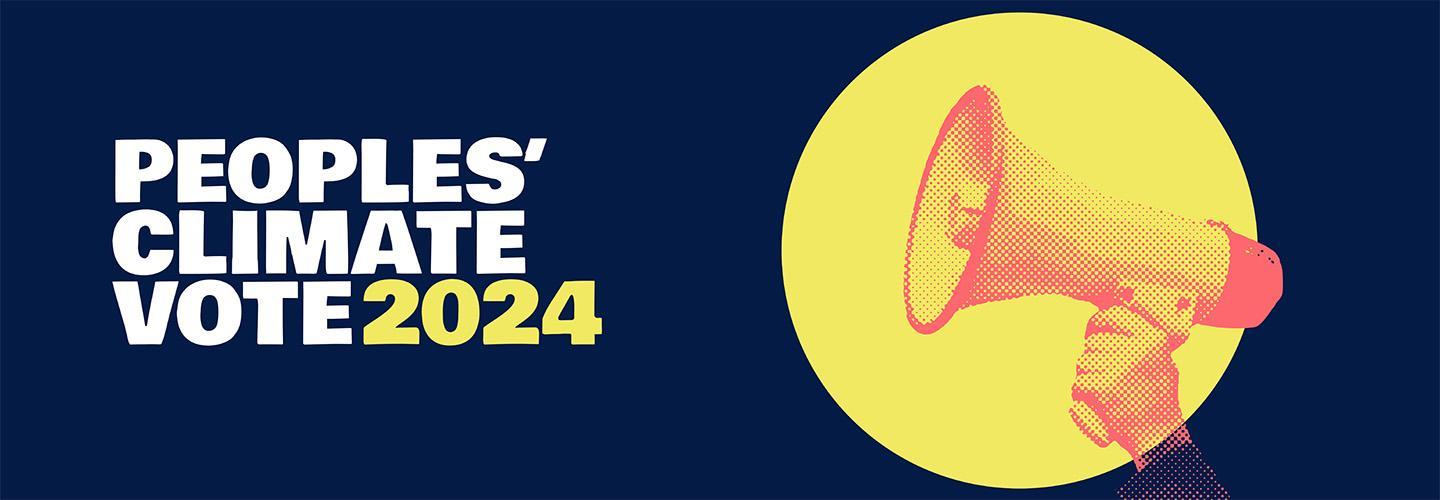
How do people around the world view climate change?
As climate change continues to drive a rise in record-breaking heat and more frequent and intense extreme weather events, people around the world are becoming increasingly concerned.
According to Peoples’ Climate Vote 2024, the world’s largest standalone public opinion survey on climate change, people everywhere are experiencing climate change in increasingly disruptive ways.
The results of the survey, which statistically represent 87 percent of the world’s population, show that climate change is on people’s minds everywhere. Globally, 56 percent said they were thinking about it daily or weekly.
Additionally, 53 percent of people worldwide are more worried about climate change now than they were a year earlier. This is most likely linked to the increasing number of climate change impacts that people hear about or have experienced themselves. More than two out of five people (43 percent) think extreme weather events were worse this year than last. Nearly eight in 10 people (78 percent) want more protection for people at risk from extreme weather.
Strikingly, almost two thirds (63 percent) are starting to take climate change impacts into consideration when making decisions like where to live or work and what to buy. A third of people (33 percent) said climate change is affecting their big life decisions a lot.
How do people think leaders should respond to the climate crisis?
Four out of five people around the world (80 percent) want more climate action from their country. They also seek global unity in responding to the crisis, with 86 percent agreeing that their countries should set aside geopolitical differences, such as those regarding trade and security, and work together on climate change.
There is a clear expectation that governments need to lead and strengthen their commitments to address climate change, with a resounding 89 percent of people wanting to see more climate action from their governments. At the same time, only 39 percent of people think big businesses are doing well in addressing climate change.
When asked about different measures to respond to the climate crisis, 81 percent of people support the protection and restoration of nature, highlighting the importance of biodiversity and healthy ecosystems in limiting climate change. Climate education is another measure that received a lot of public support, with 80 percent of people backing the role of schools in increasing awareness.
Most people agree that business-as-usual is no longer an option to keep the world on a safe path. Worldwide, 72 percent support a quick transition away from fossil fuels to renewable sources of energy. Even in the world’s biggest producers of fossil fuels, the majority of people support a quick transition away from coal, oil and gas.
Last but not least, four in five people (79 percent) expressed support for climate justice, agreeing that rich countries should increase the help given to poorer countries to address climate change and its impacts.
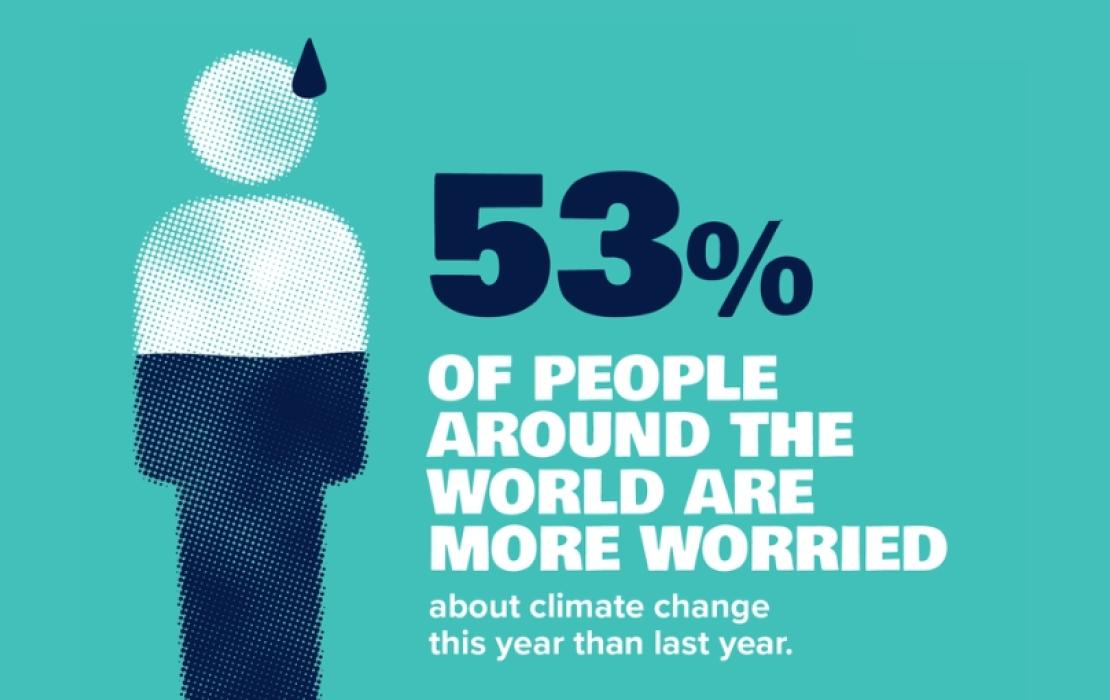
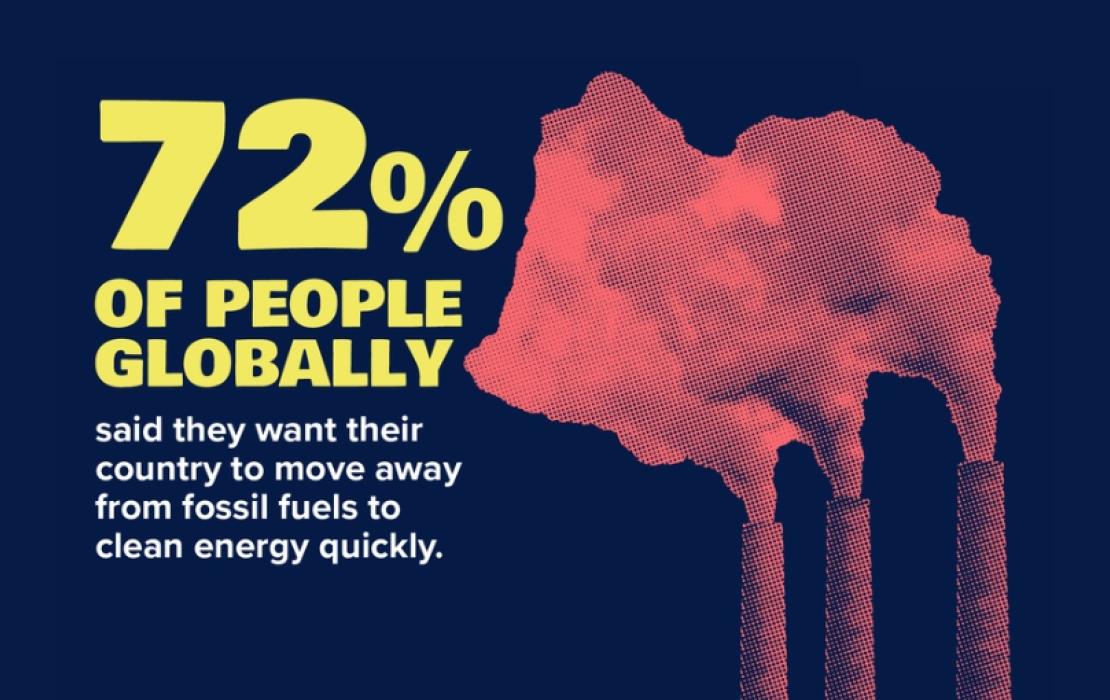
Are there any differences in the way people think about climate change based on their background?
There is a large consensus on the results of Peoples’ Climate Vote 2024. That is to say, the vast majority of people agree the climate crisis is here and that the world needs to act now.
Still, there are a few exceptions.
Given that climate change impacts are most acutely felt in countries will less resilience – who are often the least responsible for causing the crisis – more people in Least Developed Countries (LDCs) think about climate change regularly (63 percent) than the global average (56 percent).
Furthermore, as the climate crisis is an existential threat to Small Island Developing States (SIDS), it is not surprising that 71 percent of people in SIDS are more worried about climate change now than last year, a much higher percent than the global average (53 percent).
The survey revealed support for stronger climate action in 20 of the world’s biggest greenhouse gas emitters, but majorities range from 66 percent in the United States and Russia, to 67 percent in Germany, 73 percent in China, 77 percent in South Africa and India, 85 percent in Brazil, 88 percent in Iran and up to 93 percent in Italy.
When it comes to differences based on gender, in five of the biggest greenhouse gas emitters (Australia, Canada, France, Germany and the United States), women are more in favor of strengthening their country’s climate action commitments by 10 to 17 percentage points. This gap was biggest in Germany, where women were 17 percentage points more likely than men to want more climate action (75 percent compared to 58 percent).
How does understanding people’s views on climate change help in addressing it?
The results of Peoples’ Climate Vote 2024 can help national decision-makers develop ambitious policies to address climate change and engage key stakeholders by helping them understand which challenges are affecting people and what is expected of them. As the survey shows, some of these expectations include acting fast to reduce greenhouse gas emissions, offering increased protection from extreme weather events, protecting and restoring nature, closing gaps in climate education and offering increased support for the world’s most vulnerable.
The results should serve as a resource for national and local leaders to develop inclusive and ambitious climate strategies and action plans tailored to the specific needs, concerns and challenges of their citizens – including through updating their national climate pledges (known as Nationally Determined Contributions or NDCs). International climate summits, such as the Conference of the Parties of the United Nations Framework Convention on Climate Change (UNFCCC), are also great opportunities for governments to translate the survey results into pathways to climate action.
In many of the places surveyed by Peoples’ Climate Vote 2024, this type of data can be difficult to collect due to barriers such as conflict, limited access to technology or geographic inaccessibility. Many of the countries polled have never been asked for their views on climate change in such depth before, especially developing countries that have contributed the least emissions and are on the frontlines of the crisis.
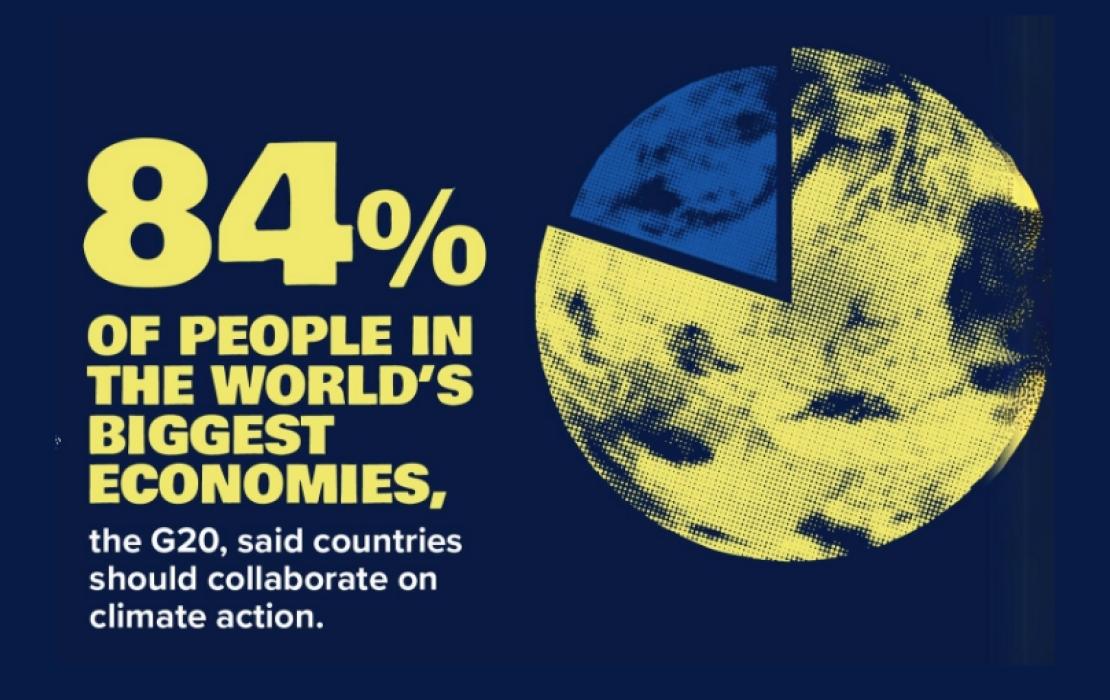
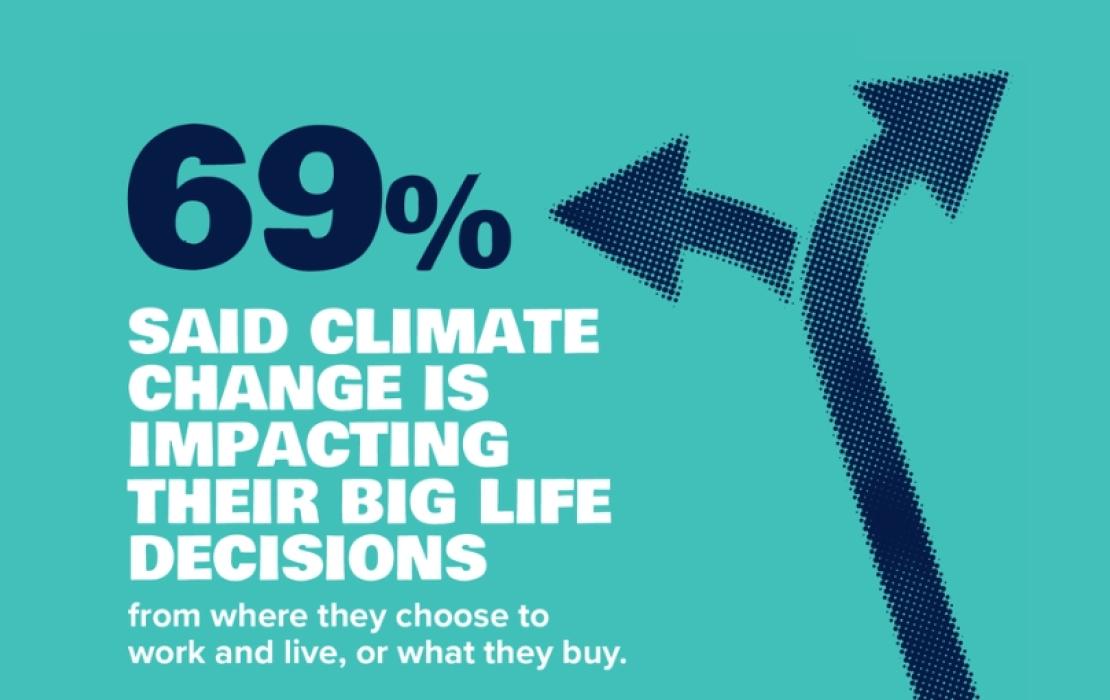
How can you use Peoples’ Climate Vote?
While government campaigns and initiatives are critical for enacting climate action at scale, citizen’s climate movements can pressure leaders to keep their ambitions high. The Peoples’ Climate Vote 2024 is an important tool that you can use to urge climate action.
Here are some suggestions on how you can make best use of Peoples’ Climate Vote:
- Share the link to the Peoples’ Climate Vote 2024 with friends, family, faith and community members, professional networks and business leaders, so they can see the findings for themselves.
- Start a conversation at the dinner table. See what people around you think and tell them how they compare to the rest of the world.
- Inform and involve people on climate issues by using your social media channels as an amplifier for the results from the Peoples’ Climate Vote 2024.
- Incorporate the survey results in letters, petitions and other correspondence to urge elected officials to support and drive increased climate action.
- Cite the Peoples’ Climate Vote 2024 data and results in your own campaigns and research.
About Peoples’ Climate Vote
The Peoples’ Climate Vote is the world’s largest standalone public opinion survey on climate change, created to deliver people’s perspectives on climate change to world leaders. Launched in 2020, the first edition of the Peoples’ Climate Vote was developed as a pillar of UNDP’s Mission 1.5 campaign to connect people and their policymakers.
The Peoples’ Climate Vote 2024 is the second edition of this global survey, bigger and more inclusive than before. More than 73,000 people speaking 87 different languages across 77 countries participated in the survey, which was conducted for UNDP by the University of Oxford in the United Kingdom and GeoPoll, a global leader in remote research.
The 2024 edition aimed to find out exactly how people are experiencing climate change in their day-to-day lives. The 15 questions were designed specifically so that they could be easily understood across different education levels and cultural backgrounds in 77 countries. They focused on people’s personal experiences with the impacts of climate change, what they would like the world to do about it, and how much further or faster they want leaders to go in responding to it.

